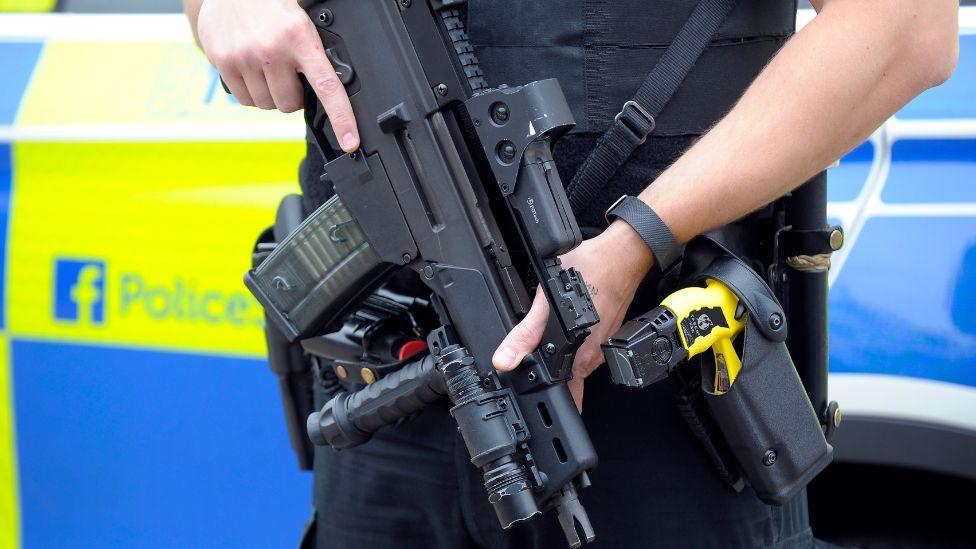A third of terrorism scheme reports in Scotland involve children
- Published

Police Scotland have published new figures about its anti-terrorism programme
Children under the age of 15 made up almost a third of referrals to Scotland's terrorism prevention scheme, figures show.
Of the 91 people reported to the Prevent de-radicalisation programme in 2021-22, two-thirds were 20 years old or younger.
Almost all of those feared at risk of being drawn into terrorism were males.
The most common concerns were over mixed, unstable or unclear ideologies, as well as right-wing extremism.
Under the Prevent scheme - one of four strands of the UK government's counter-terrorism strategy - schools and other public bodies are required to report people who show signs of being drawn into violent extremism.
An assessment is then made about whether further action is needed.
Police Scotland's figures for 2021-22 showed 27 (30%) of those reported were aged below 15. A further 34 (37%) were aged between 15 and 20.
Overall, there was a 65% increase in referrals from the previous year, though the figure for 2021-22 was closer to totals from pre-pandemic years.
The force believes Covid restrictions in schools and other institutions had an impact on the number of reports passed to the programme.

The proportion of under-15s reported to the scheme in 2022-21 was the highest in five years.
Of the 91 people identified as potentially being at risk of being exploited by extremists last year, 38 (42%) required ongoing Prevent programme intervention.
Of those who were not deemed suitable for the Prevent programme, 29 were passed on to other agencies such as social work.
A smaller proportion of the under-15 cases (13%) required further Prevent intervention, compared with 50% for the 15-20 age group.
Extremism
The most common category of concerns was over "mixed, unstable or unclear" ideologies which accounted for 49 referrals.
"This category reflects instances where the ideology presented involves a combination of elements from multiple ideologies (mixed), shifts between different ideologies (unstable), or where the individual does not present a coherent ideology yet may still pose a terrorism-related risk (unclear)," the Police Scotland report said.
The next most common reason for referral was concern about right wing ideology, involving 28 cases, while 10 referrals were for concerns related to Islamist extremism.
A small number of cases related to other types of extremism, including Northern Ireland-related terrorism and anti-Muslim concerns.
Referrals relating to right-wing extremism were more than twice as likely to lead to ongoing Prevent intervention than referrals relating to a mixed, unstable or unclear ideology.

The vast majority of all cases involved males, who accounted for 84 out of 91 referrals. Of the 38 cases that were deemed suitable for further Prevent intervention, all involved males.
Police Scotland and other UK forces are faced with the increasing challenge of monitoring and preventing radicalisation via the internet.
Assistant Chief Constable Gary Ritchie said Prevent helps "safeguard individuals who have been identified as vulnerable to radicalisation or susceptible to being drawn into terrorism or violent extremism".
He told BBC Scotland: "The Prevent strategy promotes early intervention and the adoption of a multi-agency approach to safeguard individuals and communities.
"We remain committed to building strong partnerships with communities and other stakeholders to address the underlying causes fuelling radicalisation."